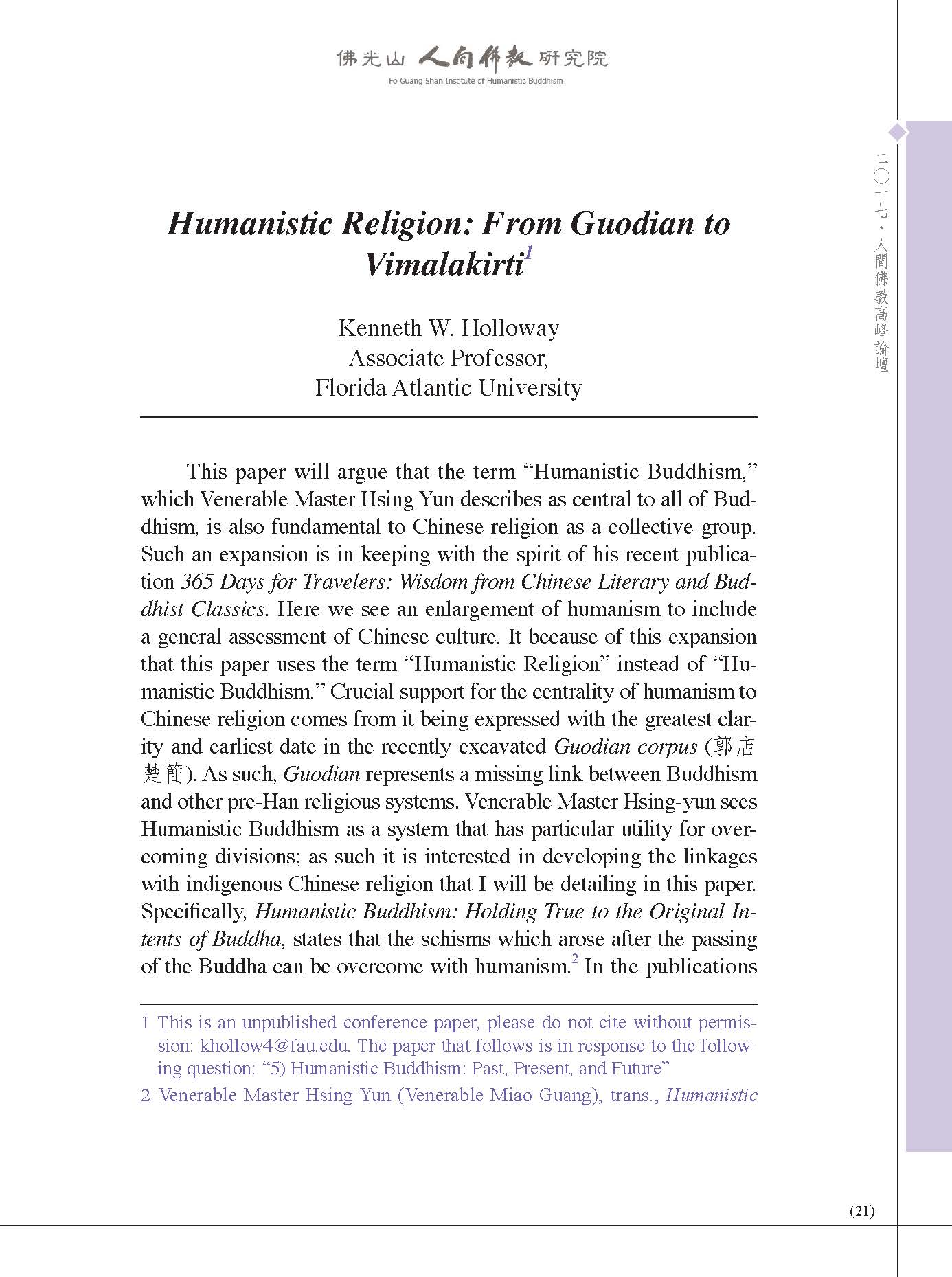
|
Humanistic Religion From Guodian to Vimalakirti
作者
Kenneth W. Holloway
單位職稱
Associate Professor, Florida Atlantic University
編者
程恭讓、妙凡法師總編輯
關鍵字
摘要
This paper will argue that the term “Humanistic Buddhism,” which Venerable Master Hsing Yun describes as central to all of Buddhism, is also fundamental to Chinese religion as a collective group. Such an expansion is in keeping with the spirit of his recent publication 365 Days for Travelers: Wisdom from Chinese Literary and Buddhist Classics. Here we see an enlargement of humanism to include a general assessment of Chinese culture. It because of this expansion that this paper uses the term “Humanistic Religion” instead of “Humanistic Buddhism.” Crucial support for the centrality of humanism to Chinese religion comes from it being expressed with the greatest clarity and earliest date in the recently excavated Guodian corpus (郭店楚簡). As such, Guodian represents a missing link between Buddhism and other pre-Han religious systems. Venerable Master Hsing-yun sees Humanistic Buddhism as a system that has particular utility for overcoming divisions; as such it is interested in developing the linkages with indigenous Chinese religion that I will be detailing in this paper. Specifically, Humanistic Buddhism: Holding True to the Original Intents of Buddha, states that the schisms which arose after the passing of the Buddha can be overcome with humanism. In the publications by Fo Guang Shan I have reviewed so far, however, recently excavated manuscripts have not been considered and this will one of the contributions of this paper.
引文
Kenneth W. Holloway, " Humanistic Religion From Guodian to Vimalakirti, " 2017人間佛教高峰論壇──人間佛教的社會向度 (2018): 21-33
全文下載











